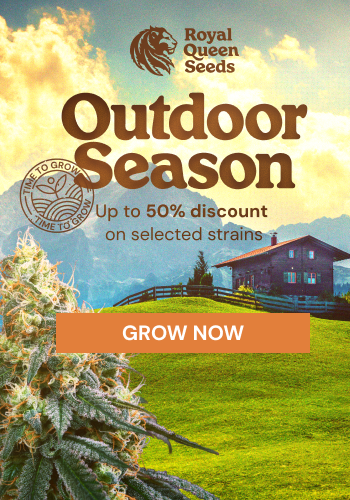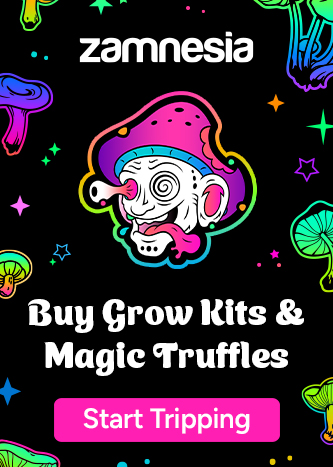Why does cannabis affect people differently?
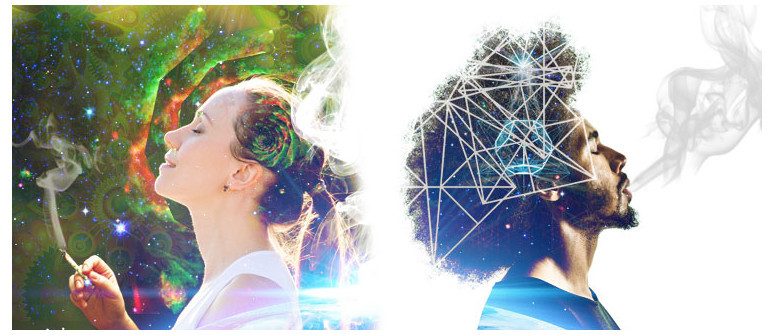
Smoking cannabis may be a positive experience for you, but that's not the case for everyone. Why is that? And why is it that your friend gets way more stoned off the same amount of weed than you? Read on to find out the personal and non-personal factors that influence how we experience cannabis as individuals.
Imagine this scenario: you and four friends are having a smoke session near the campfire by the beach. You roll up a fat one, light it up, take two huge hits, and pass it on to the next person.
The spliff finally makes a full rotation around the circle and everyone’s pretty lit up at this point. But you notice that while you’re doing just fine, the rest of your crew is staring into space, laughing their guts off, or bugging out. You then start questioning yourself, “Am I smoking way too much? Or are they just unable to handle their high?”.
There’s obviously more to this than just being a veteran vs an amateur, and science definitely has a hand in it. So fret not, dear reader. If you read through the end of this article, you should find the answers to your questions about why cannabis affects people differently.
HOW DOES CANNABIS AFFECT THE BODY AND MIND?
We’ll begin to answer this question by delving a bit deeper into the endocannabinoid system. Every living, breathing human has this system of receptors spread throughout their entire nervous system. These receptors bind or interact with cannabinoids like THC and CBD.
There are two primary receptors within the ECS: CB1 and CB2. The primary role of CB1 receptors is to control the modulation of the brain’s reward circuitry. With regards to cannabis use, CB1 also has a direct influence on dopamine transmission (hence the euphoric effect we feel after smoking).
CB2 receptors, meanwhile, are mostly concerned with immune and inflammatory responses. Once activated, CB2 helps the body achieve a more relaxed state without causing any impairment.
So, in a nutshell, CB1 receptors are all about brain function, while CB2 receptors are more related to immunity and physical responses.
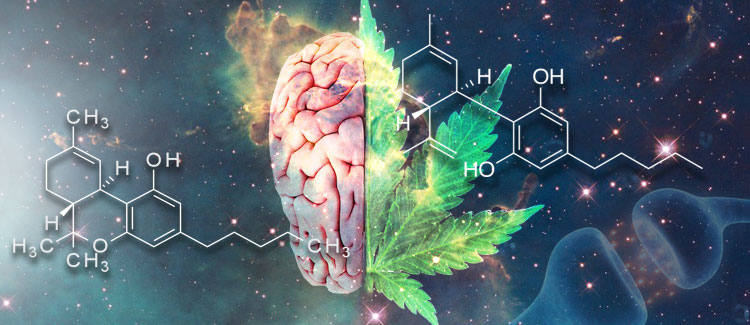
WHY DOES CANNABIS AFFECT PEOPLE DIFFERENTLY?
The saying “different strokes for different folks” couldn’t be more applicable when it comes to cannabis. Some people enjoy their first weed experience enough to want more, while others have nothing good to say about what they’ve just gone through.
STUDIES ON WHY CANNABIS AFFECTS PEOPLE DIFFERENTLY
It all lies within the nucleus accumbens, a region within the hypothalamus. Some neural activity within the NAc triggers psychosis-like effects once THC comes into play. At the same time, there are other neurons associated with rewarding effects.
The manner in which a person reacts to the cannabis high greatly depends on which particular region gets activated upon smoking. This is why certain people have such a strong affinity for cannabis that it becomes a huge part of their lives.
There is also that other side of the coin, where individuals associate smoking with paranoia, hallucinations, and other unpleasant symptoms. For the most part, it’s all about the luck of the genetic draw.
WHAT MAKES A CANNABIS HIGH A POSITIVE OR NEGATIVE EXPERIENCE?
While genetics still plays a role in the overall experience you’ll have when smoking cannabis, there are two other important factors to consider: the person’s state of mind, and their environment (i.e. set and setting). Your existing mood and perceptions, along with the amount of THC you consume, will definitely contribute to whether you have a positive or negative experience.
Strain type also plays a role. In addition to THC, CBD, and other cannabinoids, aromatic terpenes are believed to alter the high as well, which is why some strains affect you differently than others. Some may give you that perfect high, while others may be too overwhelming. To know yourself better, keep track of your consumption and note what you get out of certain strains. That should give you a more accurate measure when it comes time to toke up.
WHAT MAKES PEOPLE REACT DIFFERENTLY TO CANNABIS?
Let’s dig a little deeper, shall we? Here are several personal factors that affect an individual's interaction with cannabis, followed by some non-personal factors. And, because we’re all wired differently, these will vary from one person to another.
GENETICS
We already touched on how your genetic makeup contributes to your overall cannabis trip. But here are some specific numbers: in the United States, for example, around 20% of the adult population carries a unique genetic mutation. For some of them, that means an increase in the levels of endocannabinoids in their bodies.
If you’re part of that demographic, there’s a smaller chance for you to experience the anxiety brought on by THC consumption. But, because of the high levels of cannabinoids in your body, you’ll likely be less reactive to both CBD and THC. On the other side of the spectrum are people with lower levels of endocannabinoids (aka reduced endocannabinoid tone). These folks are more predisposed to experiencing the psychotropic effects of THC.
Outside of the paranoia, there is one perk to having fewer endocannabinoids. Since you don’t have to consume too much to get high, you’ll also spend less on buds, which should save you a good chunk of money in the long-run.
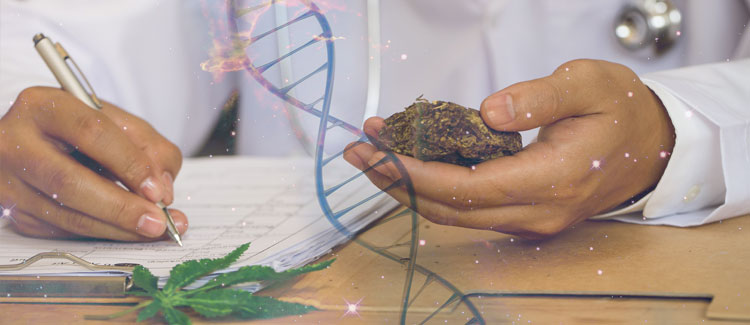
BIOCHEMISTRY
As the name suggests, biochemistry concerns the chemical processes within living organisms. And, like genetics, this varies from person to person.
Whenever we ingest different compounds—whether it’s cannabis, caffeine, or alcohol—our bodies react to it differently. Our biochemistries also change over time, depending on genetics, diet, lifestyle, exposure to stress, medical conditions, and certain habits we carry.
Endocannabinoids, for example, are produced in the presence of omega-3 fatty acids. If your diet lacks these fatty acids, your endocannabinoid system will operate less efficiently. This may result in more intense THC highs, accompanied by episodes of anxiety and mild psychosis.
SEX AND HORMONES
Hormones also tend to play a role in how we experience cannabis. Men, for example, are more likely to get hit hard by the munchies compared to women. On the flip side, women do not need to consume as much to feel the herb’s physically soothing effects.
Here’s another factoid for you: women get more desensitised to THC’s effects compared to men. The time of the month when one consumes the herb can also be a factor in the high women experience.
Fascinating, isn’t it?
TOLERANCE
The buzz you’ll feel from your first glass of Negroni won’t be the same after you’ve had your third, fourth, and fifth. Just like how it is when learning to ride a bike, you’ll eventually learn to feel it out better and achieve the balance to not fall over.
You can apply that same concept to consuming cannabis. Smoking a bit more than you did the previous session gives your body greater tolerance to its effects. And, because the THC level in today’s strains are significantly higher, your system will get used to that kind of shock a lot quicker.
If you find yourself getting less intoxicated by cannabis, one thing you can try is to switch up your preferred consumption method. Perhaps you can dabble with edibles for a week in place of smoking.
Better yet, go with a short period of abstinence. Give your system at least a month’s respite, then dive back in. As they say, absence makes the heart grow fonder.
OVERALL HEALTH
It all comes back to biochemistry. Let’s say you’re dealing with a chronic psychological condition defined by symptoms like anxiety and paranoia. Unlike those who don’t suffer from this, your system is compromised by this burden, which, as a result, causes your body to interact with cannabis differently.
In this case, consuming high-THC strains may actually aggravate your condition. Bottom line; you may want to think twice about using cannabis if you have an underlying medical condition, especially one affecting mood and/or cognition. And, since we’re living in the age of legalization, the good thing is, you can consult your physician about it.
MINDSET
Cannabis consumption leads to mind-altering experiences that could very well change your life. That’s a given. But how you approach it beforehand will largely determine whether you end up enjoying it or regretting it altogether.
If you dive into it with a positive attitude, and a healthy dose of moderation, you’ll likely achieve the positive vibes as advertised. But if you approach it with a lot of negativity, there’s a good chance your high will be uncomfortable or, at worst, nightmarish.
Here’s our suggestion: if you tend to be a pessimist for the most part, surround yourself with great people, some ear-pleasing music, and a soothing environment. Then, brace yourself for a high to remember.
NON-PERSONAL FACTORS AFFECTING A CANNABIS HIGH
• THC level (the higher it is, the more high you’ll get)
• Cannabinoid and terpene content in the chosen strain
• Amount of cannabis you consume
• Chosen method of consumption (e.g. edibles and dabs hit a lot harder than smoking a joint)
CAN YOU CHANGE THE WAY CANNABIS AFFECTS YOU?
You definitely can. If you feel like your cannabis highs are getting a little too monotonous, here are some actions you can take to shake things up:
• Experiment with different strains
Not all strains are created equal. Some have way too much THC for the layperson to handle, while others are more balanced and contain CBD and/or different ratios of terpenes. So do your research to see what will work best for your liking.
• Get yourself in the right groove
We briefly touched on having the right mindset before smoking. But what can help a lot is the environment you’re in. Surround yourself with great company, ear-pleasing music, and an overall positive environment. Do this, and you’ll be very well on your way to a memorable trip.
• Embrace it
If you're smoking for the first time, try to enjoy the moment. Even if you start to freak out, pay it no mind and just embrace it. If you're amongst people you trust, you will be in good hands.
With our discussion of how cannabis affects people differently, as well as tips on making your experience more pleasant, we hope your next smoking session gives you and your friends all the positive vibes you desire, with none of the drawbacks.


